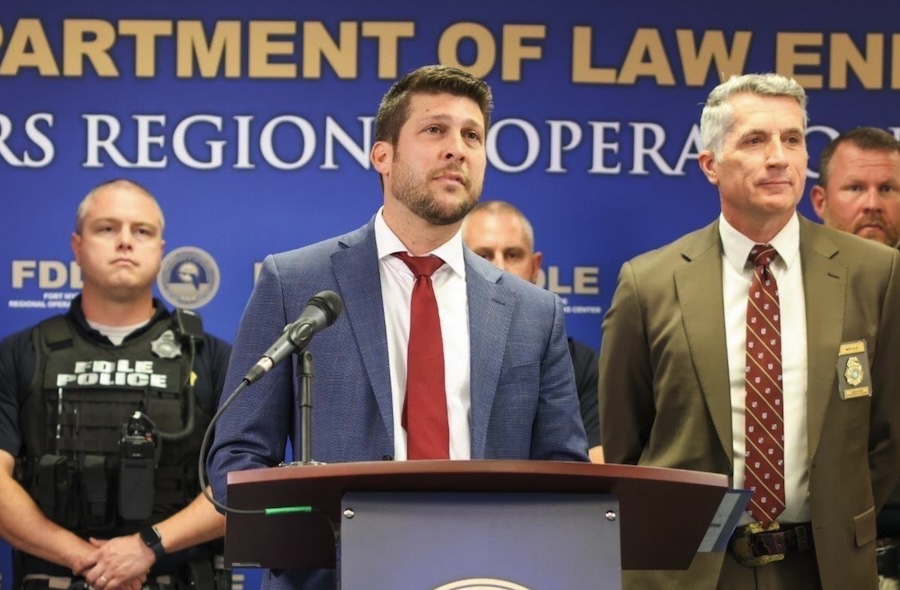Politics
Red State AG Refuses To Comply With Rogue Judge’s Anti-Trump Ruling

Florida Attorney General James Uthmeier is pushing back hard against a federal judge’s attempt to pause enforcement of a new state immigration law. At the heart of the dispute is Senate Bill 4-C, a Florida law signed earlier this year that makes it a misdemeanor for illegal immigrants to enter Florida while avoiding federal immigration authorities.
The law was met with immediate backlash from progressive legal groups, including the ACLU, which filed suit to block it.
U.S. District Judge Kathleen Williams—an Obama appointee—first intervened on April 4, issuing a temporary restraining order to halt enforcement of Florida’s immigration law. She argued the measure likely violates the Constitution’s Supremacy Clause, which grants the federal government primary authority over immigration policy.
Building on that decision, Williams issued a 49-page ruling on Tuesday granting a preliminary injunction. Despite Judge Williams’ initial restraining order, at least one high-profile arrest occurred under the law before the court issued a broader preliminary injunction clarifying its application to all state law enforcement. As a result, the judge scheduled a hearing next month to consider whether Florida Attorney General James Uthmeier should be held in contempt or sanctioned. In response, Uthmeier’s office filed a formal notice of appeal to the 11th U.S. Circuit Court.
“The judge wants me to put my stamp of approval on an order prohibiting all state law enforcement from enforcing Florida’s immigration laws when no law enforcement are party to the lawsuit,” he told Fox News. “I’m just not going to do that.”
No other state is working as closely with the Trump admin to remove illegal aliens out of our country.
Great work being done by Florida’s law enforcement and our federal partners. https://t.co/NLCDeDPsrF
— Attorney General James Uthmeier (@AGJamesUthmeier) April 26, 2025
“We believe the court has overstepped and lacks jurisdiction there, and I will not tell law enforcement to stop fulfilling their constitutional duties,” Uthmeier continued. “I do not believe an AG should be held in contempt for respecting the rule of law and appropriate separation of powers. The ACLU is dead set on obstructing President Donald Trump’s efforts to detain and deport illegals, and we are going to fight back. We will vigorously defend our laws and advance President Trump’s agenda on illegal immigration.”
On April 16, just days after the federal order, the Florida Highway Patrol arrested Juan Carlos Lopez-Gomez, a Georgia-born U.S. citizen, under the very law Judge Williams had sought to freeze. Though Lopez-Gomez reportedly showed valid ID, he was detained for nearly a full day before being released.
True to his word, on April 23, Uthmeier sent a memo to law enforcement agencies across the state informing them that the court’s injunction did not apply to them, since they were not named defendants in the lawsuit. His directive effectively told police they could keep enforcing the law.
Judge Williams erupted at the news, calling herself “surprised and shocked” by Uthmeier’s defiant memo and asserting that her order applied to all Florida law enforcement, whether they were part of the lawsuit or not. She has now scheduled a contempt hearing for May 29, where Uthmeier could face personal sanctions for allegedly encouraging continued enforcement of what she labeled an unconstitutional law.
In response, the attorney general is taking the fight to the 11th U.S. Circuit Court of Appeals. Uthmeier’s legal team filed an appeal of the injunction, arguing the law does not conflict with federal immigration statutes and asserting that the plaintiffs—led by the ACLU—lack proper standing to sue.
As border-related issues become a centerpiece of President Donald Trump’s second term, red states like Florida are taking more aggressive stances to counteract what they see as lax federal enforcement. Uthmeier, a staunch Trump ally, has framed SB 4-C as a necessary tool in defending the state against a growing crisis.
For now, Uthmeier is betting that the Constitution—and the court of public opinion—are on his side.

